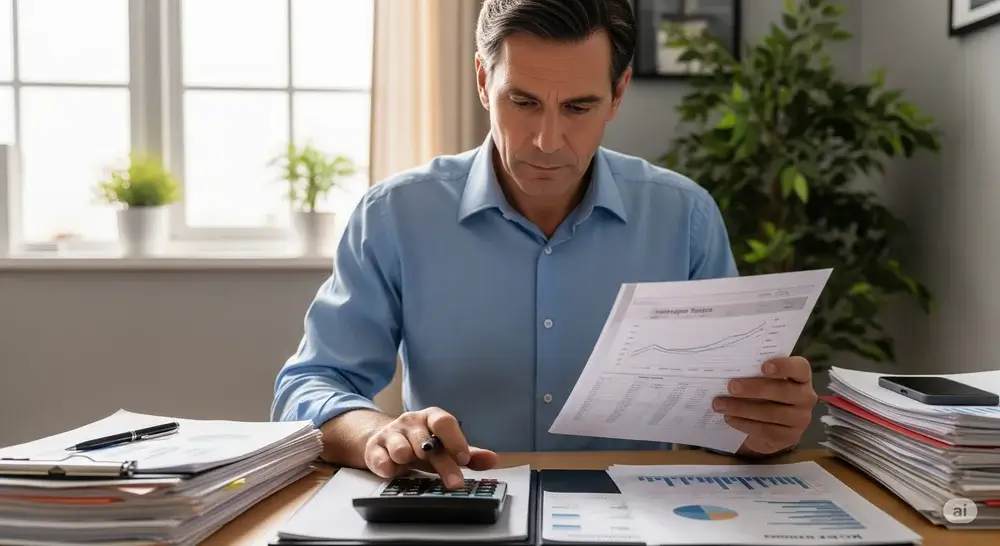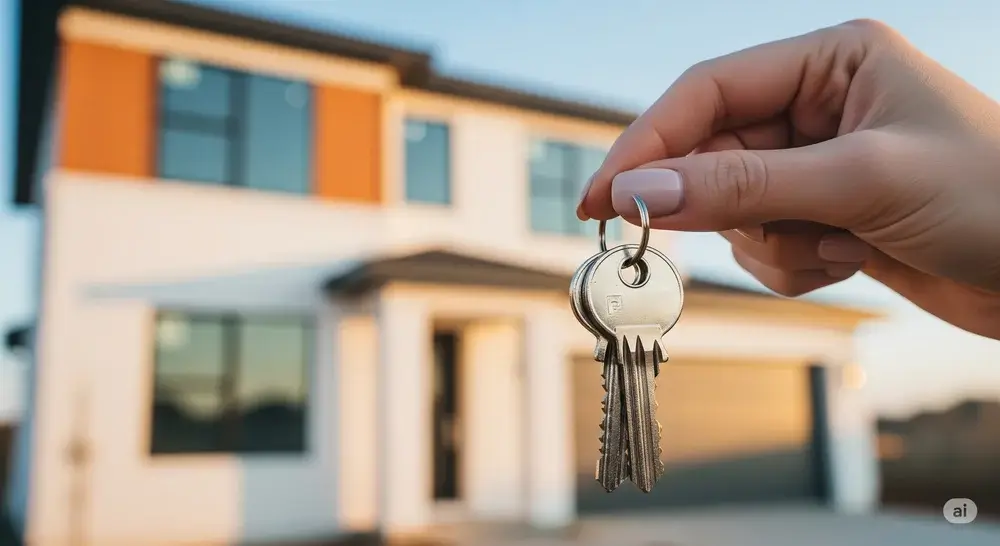Complete Guide to Buying Your First Home in Spain: Key Steps and Mistakes to Avoid
Buying your first home is one of life’s most exciting and significant milestones. However, it can also be a complex process fraught with uncertainty. At Bamberry, we want to make this journey easier and more transparent for you. This comprehensive guide breaks down the essential steps and warns you about common mistakes, so you can purchase your new home in Spain with confidence and peace of mind.

Define your Budget and Get Mortgage Pre-approval
Before you start dreaming about the perfect balcony, the first thing to know is how much you can afford. This includes not only the price of the property, but also additional expenses (taxes, notary fees, registration fees, appraisal fees, etc., which can add up to 10% to 15% of the purchase price).
- Calculate Your Borrowing Capacity: Banks generally recommend that your mortgage payment should not exceed 30–35% of your monthly net income.
- Savings: How much money do you have set aside for the down payment and additional expenses? Keep in mind that banks rarely finance 100% of the property’s value.
- Mortgage Pre-Approval: This step is essential. Speak with different banks to obtain a mortgage pre-approval. This will give you a clear picture of how much they are willing to lend you and help you search for properties within your realistic budget, giving you an advantage when making an offer.
Research the Market and Define Your Priorities
With your budget in mind, it’s time to do your research. Keep in mind that the location you’re looking for offers a variety of areas, each with its own characteristics and prices.
- Wishlist vs. Reality: Make a list of your “must-haves” (number of bedrooms, area, proximity to public transport, schools, etc.) and your “nice-to-haves.” Be realistic with your budget.
- Research Neighborhoods: Take the time to get to know the neighborhoods. Are there schools, parks, shops? How is the commute to your workplace?
- Prices by Area: Research the average price per square meter in the areas you are interested in. This will help you determine whether a property is reasonably priced.
The Active Search for Properties
Now that you know what you’re looking for and where, it’s time for action.
- Real Estate Agency: Consider working with a trusted real estate agency like ours. We have access to a wide portfolio of properties that you may not find online and can advise you on the real value of the properties.
- Property Visits: Be methodical during your visits. Pay attention to details: structural condition, utilities (water, electricity, gas), insulation, natural light, and orientation. Don’t rely solely on aesthetics!
- Key Questions: Don’t hesitate to ask the seller or agent about the general condition of the property, potential renovations, community fees, property taxes, etc.
Make your Offer and Negotiate
Once you find the perfect home, it’s time to make an offer.
- Reasoned Offer: Your offer should be based on your budget and the market value of the property. A real estate agent can help you draft a solid offer and negotiate on your behalf.
- Negotiation: Be prepared to negotiate. The initial price is just that—a starting point. A good agent can be key in this process.
- Deposit Agreement (Contrato de Arras): Once the offer is accepted, a deposit agreement (or earnest money contract) is signed, a private agreement between buyer and seller that formalizes the purchase commitment and establishes the conditions and timeline for the final signing.
Mortgage Management and Legal Documentation
This is the most technical step and where professional advice is most valuable.
- Appraisal: The bank will send an appraiser to assess the property. This value will be crucial for the final amount of your mortgage.
- Documentation: Gather all the necessary documents requested by the bank and notary (ID, recent payslips, employment history, tax returns, property deed, land registry extract, etc.).
- Legal Advice: Having a legal advisor or the agency’s own management team is essential to review all documents and ensure that the property is free of liens and hidden defects.

Signature before Notary and Delivery of Keys
The big day has arrived! The signing takes place at a notary’s office.
- Signing Ceremony: The sale deed and mortgage deed (if applicable) will be read. Make sure you understand all the terms and don’t hesitate to ask any questions before signing.
- Payment Delivery: At this moment, the final payment for the property is made and, if applicable, the mortgage is established.
- Property Registry: Once the deed is signed, the property is registered in your name at the Land Registry.
Common Mistakes to Avoid:
- Not Defining Your Budget: Jumping into the search without knowing what you can afford is a waste of time and can lead to frustration.
- Forgetting Additional Expenses: The property price is not the only cost. Always add an extra 10–15% for taxes and other expenses.
- Not Checking the Property’s Condition: Go beyond aesthetics. Check the installations, humidity, structure, etc. A small investment in a technical inspection can save you a lot of money.
- Not Negotiating: There is almost always room for negotiation.
- Skipping Professional Advice: A good real estate agent and legal advisor will protect you from surprises and speed up the process.
- Not Reading the Fine Print: Read all contracts carefully before signing!
Ready to take the first step toward your new home in Spain?
At Bamberry, we are experts in the local market and are here to guide you through every stage of buying your first home. From the search to the signing, we provide honest and professional advice to ensure your experience is successful and stress-free.
Don’t leave your dream to chance! Contact us today for a free, personalized consultation. We’ll help you find the perfect home and avoid any setbacks.
